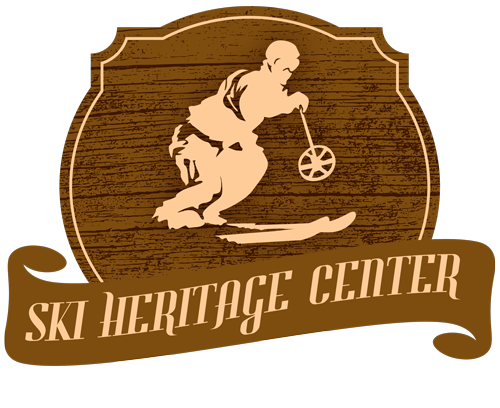They Bet Their Shirts on Skiing #5
By ED SCHENCK, as told to EDMUND CHRISTOPHERSON
That was Then…
(Reprinted from The Saturday Evening Post, March 4, 1950. This is the 5th installment, continued from last week’s Ski Locker feature.)
After lots of finagling, we finally recruited a man from Kalispell, which is thirteen miles south of Whitefish. We’d arranged for him to ride up with a carpenter who made the trip every day, That first morning, as they drove through town on their way to work, the driver pointed out Big Mountain, looming to the north. After a short, silent interval, his passenger said, “Say, will you stop at the next corner for a minute?" When the car halted, he got out, closed the door, and said, “So long. I'll be seeing you. You might as well take my lunch along. Maybe someone up there can use it." So George climbed on top of the vibrating heap of old bolts and went to work cutting new trails.
Another laborer, recruited from the local unemployment service, reported for work one morning. The cat had bogged down on the side hill, and we'd mucked up a good-sized area in trying to get it out. I planned to use him to
.help get the tractor unstuck, and took him over to where it was mired. He looked at the knee-deep muck it had churned up and said, "You mean you want me to get down into that mess too?"
I said, “Yes, and if you don't like it, you know where you can go."
He was quite dignified and respectful about it. He laid down his shovel as if it were a wreath he was putting on some important guy's grave, brushed off his hands, and said, "Yes, and that's where I'm going," and walked the seven miles back to town.
Troubles like these always seemed smaller as the shadow of another payday approached. Getting the actual cash for the project was a lot more difficult than getting the pledges had been. The outfit designing our lift and providing the machinery evidently knew ow these things can be, for they demanded their $25,000 in escrow be fore they'd lift a pencil. Our payroll took another $1,500 a week all during construction and I don’t think we ever began a week with enough money to meet it. Every Friday, George would go into town to remind the volunteer salesmen that another crisis was upon us.
They, in turn, would put on their stalking shoes and go out in pairs to work on new or reluctant prospects. I think we'd have more skiers today if so many of them --hadn't walked them selves flat-footed selling stock to help us meet payrolls. On Saturday, George would keep encouraging them. On Monday things would have narrowed down pretty much to a couple of possible sales on which Tuesday's payroll depended. It was one of the most awful scrambles I've ever seen. Twice there were no miracles, and we faced the crucial day without funds. These times George came through with some money he'd been foresighted enough to hold out.
But it wasn't until we got to building the road that we realized just how much the community was behind us. The Forest Service – most of our skiing is done on Government land – was impressed by the showing we were making on the hill and agreed to put $15,- 000 into extending and widening their fire-access road up to the lodge if we'd put something into the effort. Much as we needed an adequate all-weather road to keep the mountain open to skiers for the full season, we just didn’t have any money to do it.
In this emergency, the townsfolk stepped in and donated their labor as our share of the road cost. On evenings, Saturdays, and Sundays as many as forty volunteers would work at swamping out brush and cutting timber to clear the right of way. We soon discovered that the secret of a successful working bee was to make the women feel that they were an important part of the affair. If you didn't, it'd be a mighty sparse party. The way we worked it out, the gals would officially come along to feed us, but lots of times they'd take an ax and chop down a tree where no one could watch them.
In a typical crew, we'd have doctors, lawyers, storekeepers, bank clerks, our postmaster, and the mayor, swinging axes alongside professional timbermen. A couple of times the Northwest Lumber Company shut down early and sent a bus filled with thirty sawmill workers to help. One Saturday when interest flagged, we got a crew out by offering to raffle off a $100 share of stock if twenty men would each work five hours. La Plante's Cafe donated a fine lunch of beef stew, bread, butter, coffee, and cake. Only nineteen men had turned out, and in the expansive glow that follows a good meal, someone suggested that La Plante's name be the twentieth in the drawing. Sure enough, the cafe owner won the stock.
(To be continued next week.)
